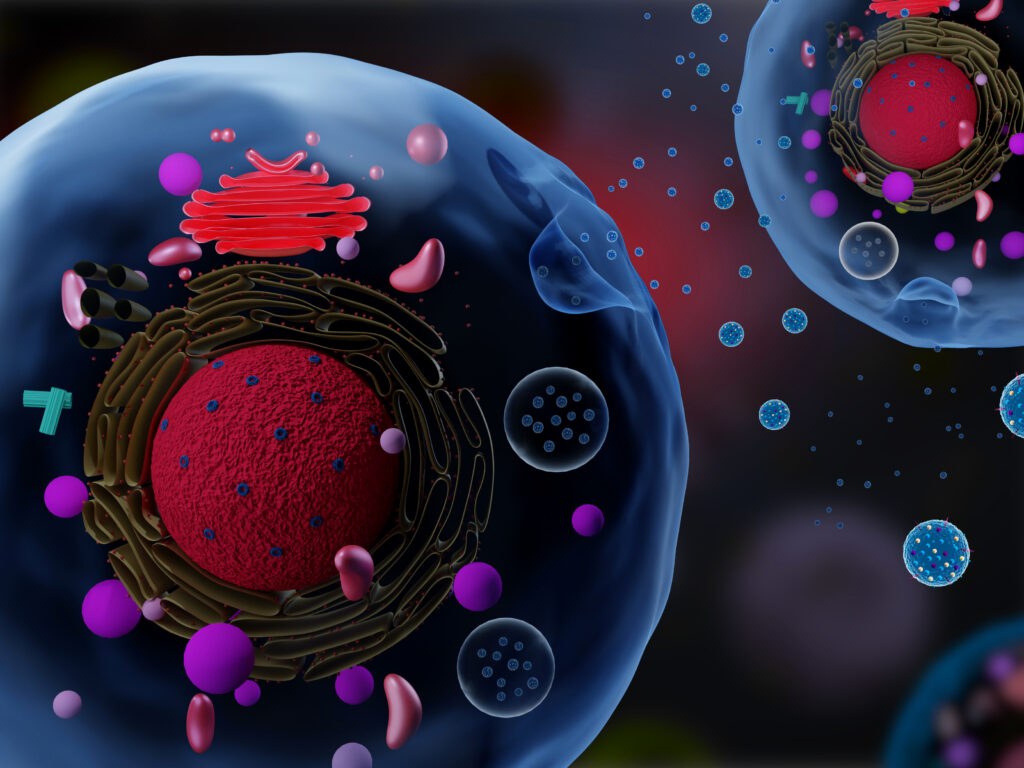
What are the differences between stem cells and exosomes?
Stem cell therapy involves guiding stem cells into becoming specific cells in the body. Stem cells are found in several places, including embryos, umbilical cords, and in adult bone marrow and fat.
In stem cell therapy, donor stem cells are placed in your body to replace and repair diseased cells. Stem cells grow and divide for a long time, so treatment gets your body started on the healing process, and then it continues to create healthier cells over time.
When our stem cells are communicating well with each other and doing their job, they rush to the site of injury and begin repairing tissues. As we age, they become less and less good at this process. Injuries take longer to heal and degenerative conditions overwhelm us.
Exosomes are responsible for assisting both the T-cells and NK cells in our immune system, among other things. T-cells are responsible for calming an immune response, while NK cells are responsible for ramping up that response. We need both, but when NK cells aren’t “turned off” or T-cells aren’t “turned on,” pain and inflammation are often the results.
When exosomes are injected, they start signaling to the cells to return to healthy function. They send proteins into the walls of the cells telling the cells how to regulate themselves. There are two stages to the body’s response. In the first stage, which happens almost immediately, the inflammation response is turned off. In the second stage, the exosomes basically tell the cells how to regulate themselves correctly in the future, leading to long-term relief.
Exosomes are powerful elements that can restore cells throughout your body. They enhance cell-to-cell communication, which is essential for overall cell health.
Compared to adult stem cells, exosomes contain nearly three times the amount of growth factors. More growth factors mean a better ability to restore and revitalize target cells.


